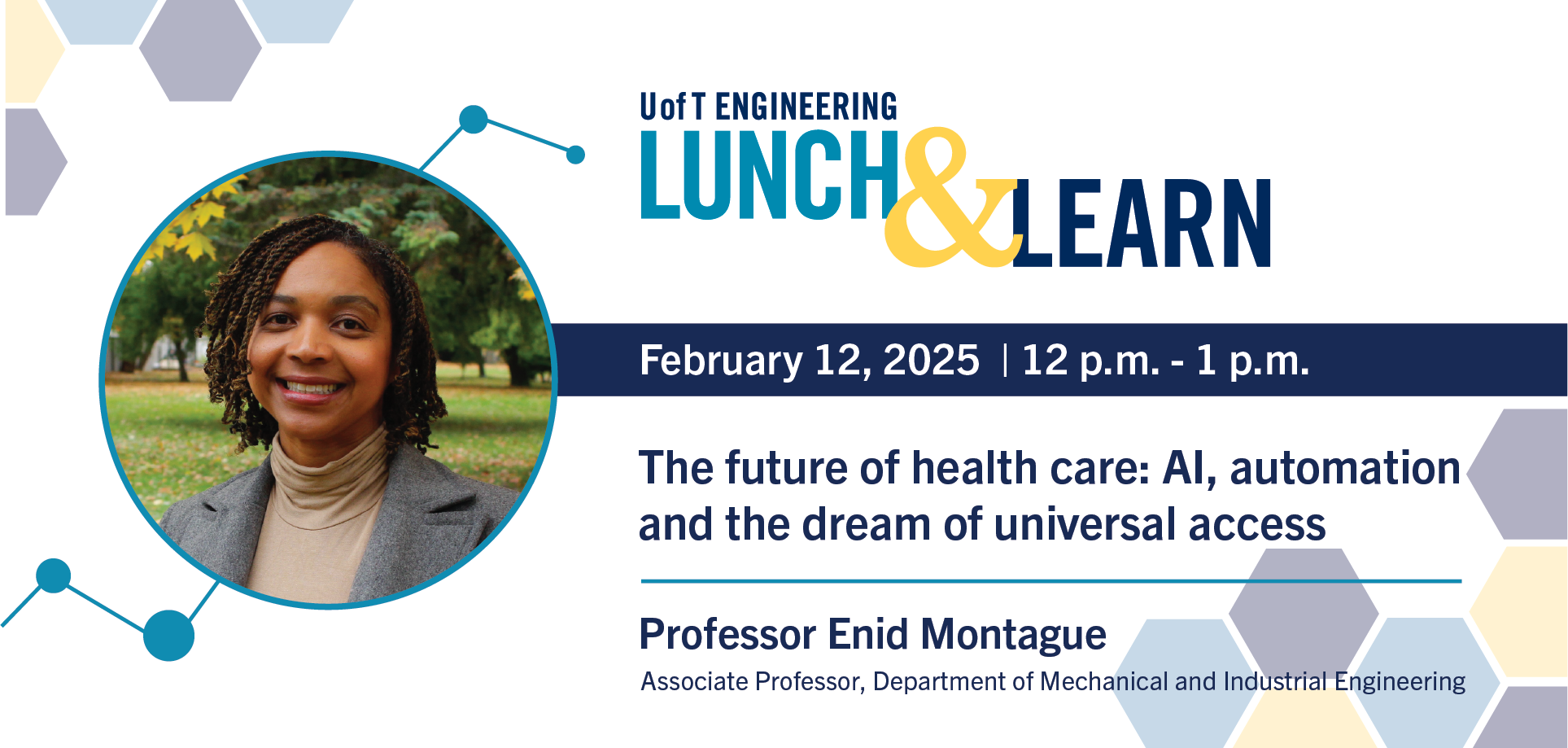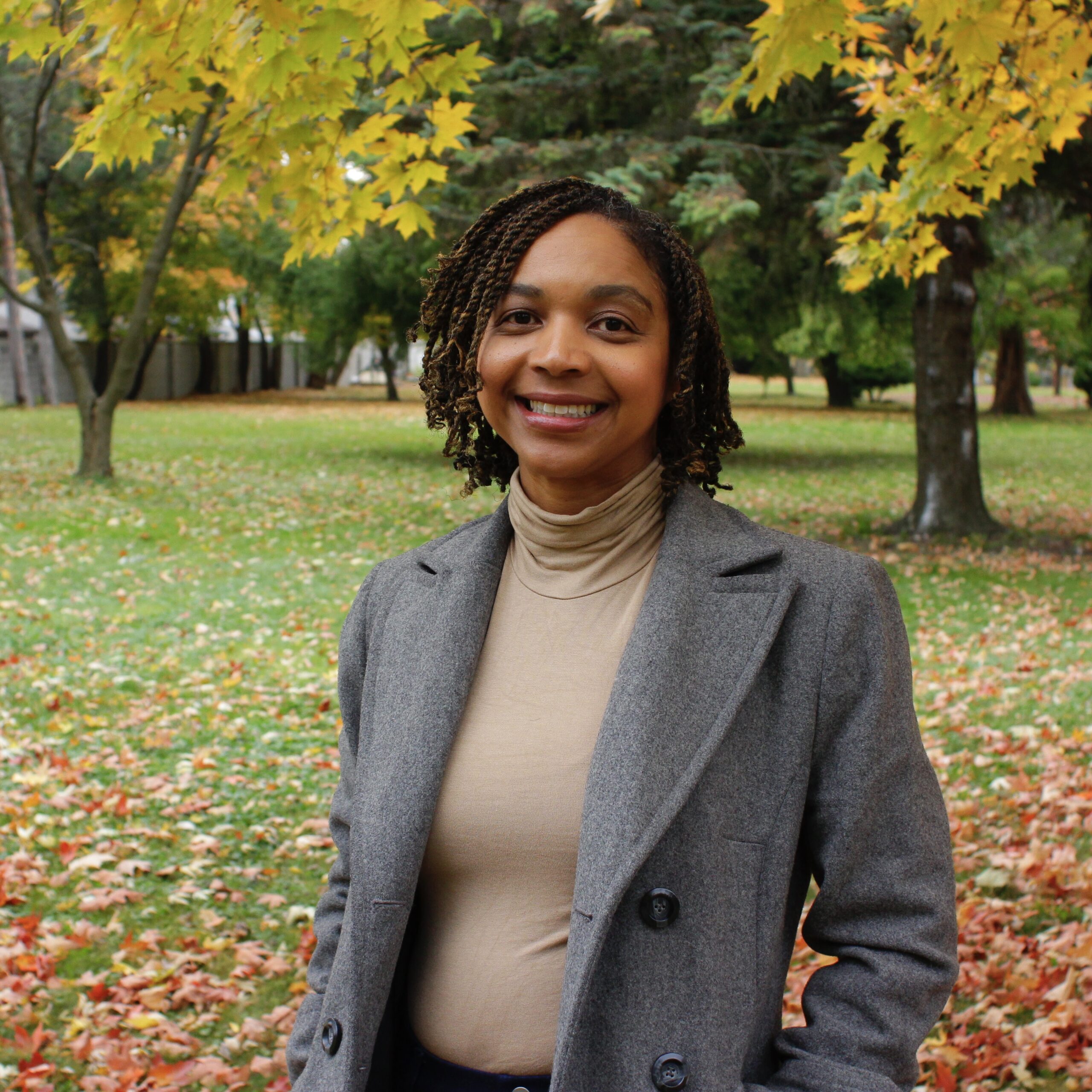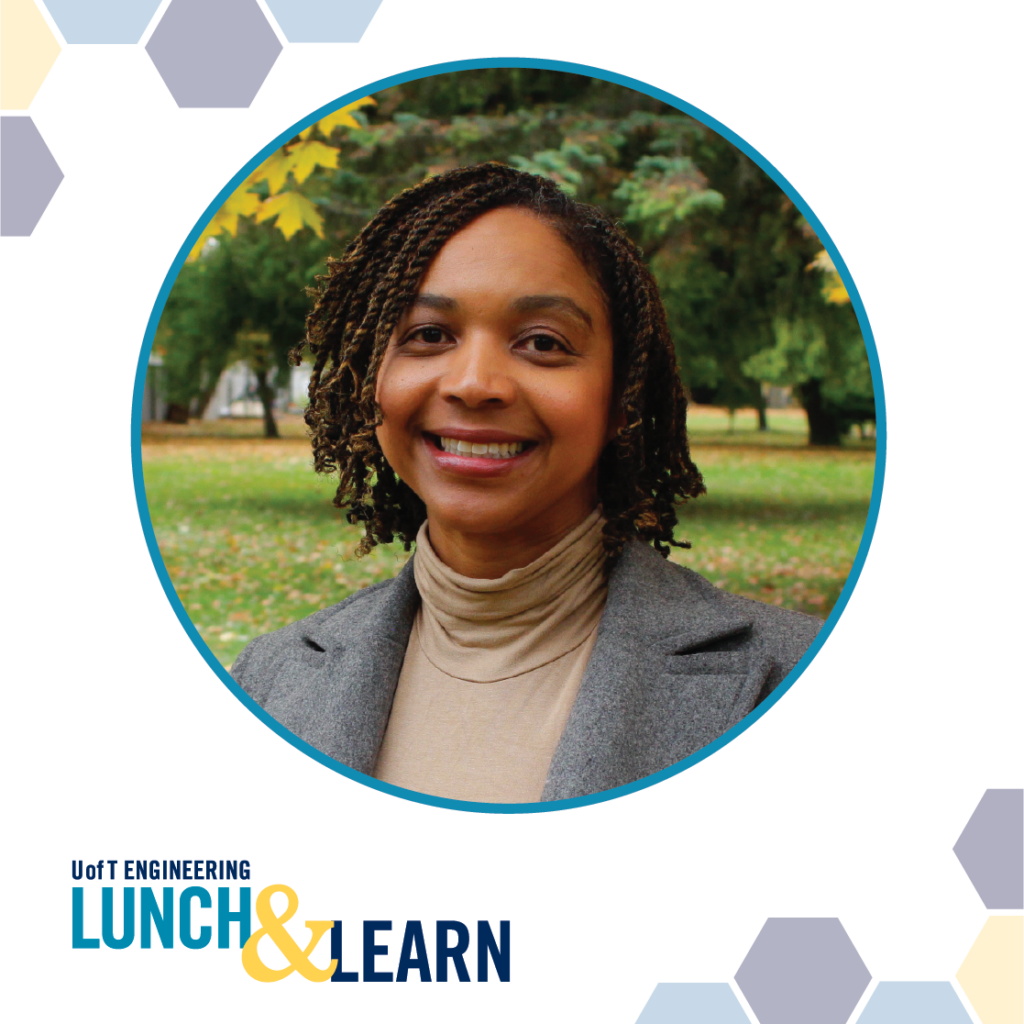
Canada is grappling with a critical doctor shortage, leaving over six million Canadians without access to a primary care physician. And it’s not hitting everyone equally—marginalized communities are feeling the impact the most.
What if we could use engineering tools to make health care more affordable, accessible and equitable?
Enter human-centered automation. Professor Enid Montague is leading innovative research on designing artificial intelligence (AI) tools that streamline clerical tasks for physicians, giving them more time to focus on their patients. Her work also includes developing chatbot applications to help patients navigate the health-care system or manage their medications. By rethinking health care with engineering and tech, we could stretch limited resources further and build systems that work better for everyone.
By registering for the Skule™ Lunch & Learn event, you could potentially earn Continuing Professional Development (CPD) credits. CPDs are essential for professional engineers and limited license holders to renew their licenses annually through the PEO PEAK Program. If you're wondering whether this event offering qualifies you for CPD credits, click here to learn more.
About the speaker

Enid Montague, PhD is a Canada Research Chair in human-centred automation and Associate Professor in the Department of Mechanical and Industrial Engineering. Dr. Montague researches appropriate automation between physicians, patients and technologies and designing systems for health equity and patient safety. She uses mixed methods in naturalistic settings to model human technology interaction and develop guidelines for human-automation that is efficient, effective and safe for patients and health care providers.
Which spotlights Black research excellence and the vibrant network of award-winning, multidisciplinary and leading researchers shaping a better future.
Dr. Montague is the director of the Black Research Network, which spotlights Black research excellence and the vibrant network of award-winning, multidisciplinary and leading researchers shaping a better future. She is also the director of the Wellness and Health Enhancement Engineering Laboratory (WHEEL)and has received numerous awards for her research including the Francis Research Fellowship, a Kl2 early career award from that National Institutes of Health (NIH), and a Fulbright award to improve health care systems.


